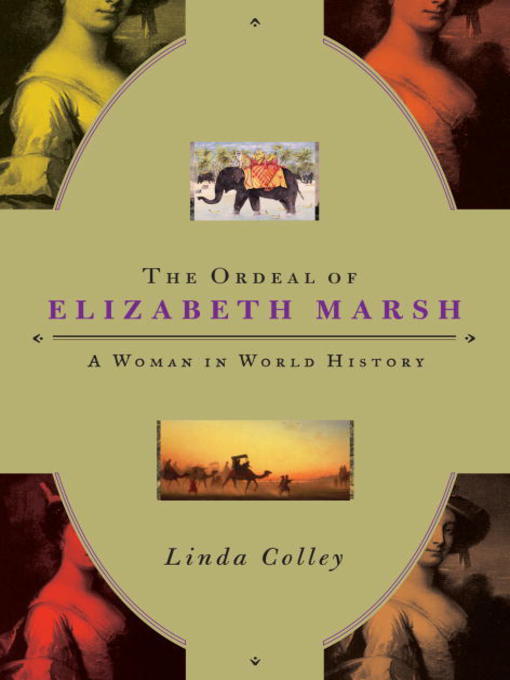
The Ordeal of Elizabeth Marsh
A Woman in World History
- اطلاعات
- نقد و بررسی
- دیدگاه کاربران
نقد و بررسی

June 18, 2007
There were many ordeals—and adventures—in the tumultuous life of this emblematic 18th-century Englishwoman. At age 20 Marsh was captured by Barbary pirates and narrowly fended off the Moroccan sultan’s attempts to induct her into his harem. She married a British merchant, went through both luxurious high living and humiliating bankruptcy, followed him to India, where they remade themselves as colonial grandees, then suffered another bankruptcy. (A further “ordeal” was snagging a husband for her under-dowried daughter.) Historian Colley (Captives: Britain, Empire and the World, 1600–1850
) styles Marsh a “female Candide” batted about by world-historical forces. Shaped by the breakdown of barriers in this age of “proto-globalization” (Colley speculates excitedly, but without evidence, that Marsh was of mixed racial background), her life was opened up by the rise of the British Empire and disrupted by attendant upheavals like the Seven Years War and the American Revolution. Still, in Colley’s account, she retains her own power: Marsh cannily leveraged family connections to the British naval bureaucracy to facilitate her voyaging, published a piquant memoir of Moroccan captivity and enjoyed a scandalous 18-month tour of India accompanied by a dashing, unmarried British officer. Colley makes of her story both an engaging biography and a deft, insightful social history. Photos.

July 1, 2007
Research undertaken for a previous book, "Captives: Britain, Empire and the World 16001850", introduced Colley (history, Princeton Univ.) to Elizabeth Marsh (173585), a middle-class British woman from a family of mariners and merchants and herself an adventurer. Colley, a disciple of the unpretentious school of historical writing championed by her mentor, social historian J.H. Plumb, uses a trove of family writings, including first-person journals, to piece together Elizabeth's many ordeals. Her recorded musings exemplify a genre of early travel writing by women that has only recently begun to receive its due as a rich historical source. Colley uses Marsh's life as a lens through which to show a period of great social transformation; travel, technology, commerce, international politics, and gender roles all changed swiftly and dramatically during the 18th century. Colley brings alive many historical personalities, especially the "bold and impudent" and "intelligent and curious]not scholarly" Elizabeth and the petulant Moroccan sultan whose corsairs captured her Britain-bound ship when she was 20. Elizabeth married a fellow captive after their release and later wrote a memoir of this episode, which became her first publication. Colley's grounding in her subject makes her writing authoritative and her analysis savvy. Recommended for all libraries.Theresa Kintz, Wilkes Univ., Wilkes-Barre, PA
Copyright 2007 Library Journal, LLC Used with permission.

August 1, 2007
A globe-trotter, well ahead of her time, Marsh lived a life of travel and adventure few eighteenth-century women could even imagine. The daughter of a shipwright, she spent much of her youth at sea on British warships. Captured and taken to Morocco in 1756, she later escaped and wrote and published a book about her ordeal as a would-be member of the sultans seraglio. Rather than restrict her wanderlust, marriage opened up new vistas for Marsh. Sailing to India to join her husband, she managed stops in exotic ports of call along the way. Once in India, she traveled overland, chronicling the sights and sounds of her extraordinary journey in an intimate travelogue. Make room on the shelves in the womens history collection for this robust portrait of a forward-thinking woman well ahead of her time.(Reprinted with permission of Booklist, copyright 2007, American Library Association.)




دیدگاه کاربران